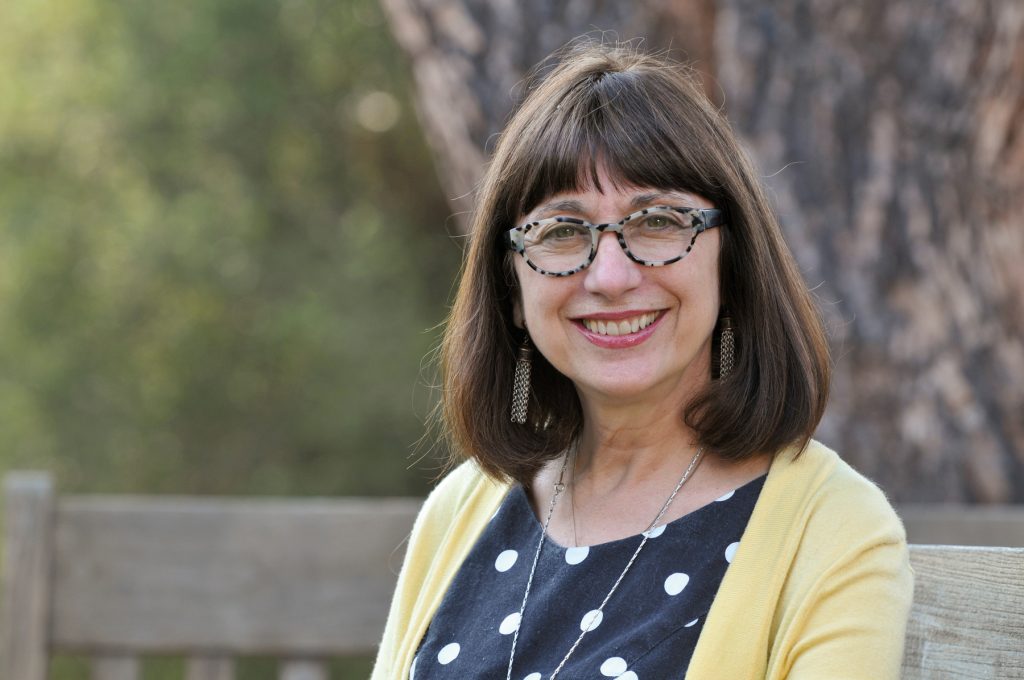Maryanne Wolf, renowned for her scholarship on dyslexia, discovered her call to help people read while doing Catholic mission service among the children of illiterate agricultural workers.
Her understanding of the neuroscience of reading, including how reading wires the brain for empathy, led to her recent appointment to the Vatican’s Pontifical Academy of Sciences. She is director of the Center for Dyslexia, Diverse Learners and Social Justice at UCLA.
“Literacy is a basic human right,” she said. “Without it, a healthy trajectory of development can’t happen.”
Her love of reading and social justice flow from her childhood in a two-room Catholic school, with four grades to a classroom, in rural Illinois.
“By the time I was in second grade, I knew what the fourth-graders knew, and I was a troublemaker. I talked, talked, talked,” Wolf recalled. “Sister Rose Margaret told my parents that I was a problem.”
Their agreed-upon solution was her parents’ donation of a small library, ranging from works of science and literature to the lives of the saints. All the students had access, and she could read when she finished her assignments.
“That made me a reader from the start,” she said. “It gave me a chance to leave my tiny town and be anyone, anywhere, at any time.”
She enrolled in St. Mary’s College-Notre Dame to study literature. She grew spiritually under the theological tutelage of Father John Dunne, who remained her mentor until his death in 2013.
In 1970-71 she did a mission year in a region of Hawaii that tourists rarely see, teaching the children of plantation workers.
“I had mistakenly assumed that my love of literature would be enough to teach them how to read,” she said. “The great love of the children, combined with my failure to teach most of them to read, was devastating. And it gave me the insight that, if they didn’t become literate, they would turn into their illiterate parents, who were basically indentured to the plantation. That changed my life.”
It led her to earn a doctorate from Harvard on the neuroscience of reading.
She spent most of her career at Tufts University. As she finished writing “Proust and the Squid” (HarperCollins, $16.99) on how the brain reads, she realized that screens were changing readers into viewers. Screen readers were losing the brain circuitry necessary to cultivate understanding, imagination, analysis, and empathy.
Since she worked online, she personally tested her hypothesis. Wolf assigned herself to systematically re-read a favorite novel by Hermann Hesse in book form, assuming it would be a pleasurable daily break. Instead, she loathed it. She struggled to follow dense prose that had once delighted her.
She still works online and supports a circumscribed role for digital learning. But her latest book, “Reader, Come Home” (HarperCollins, $24.99), is a plea for parents to read print storybooks to children and provide a slow, methodical introduction to digital reading.
“We are really endangering our young kids by using the babysitter approach to the screen,” she said. “Parents don’t know how important their role is in just reading to their children.”
She moved to UCLA two years ago. Her appointment to the Pontifical Council of Sciences is part of Pope Francis’ Global Compact on Education. She is glad for the opportunity to freely consider the spiritual dimensions of reading.
“It is our staircase to going beyond ourselves. It is our way of glimpsing the transcendent,” she said.
She has found literary healing by beginning and ending each day absorbed in the printed page. For Catholics, she recommends “lectio divina,” prayerfully reading and acting upon Scripture.
“Try to read something that takes you out of yourself,” she said. Whether you end the day with Scripture or a novel, “it will bring you peace and solace. You can find sanctuary in a book.”

